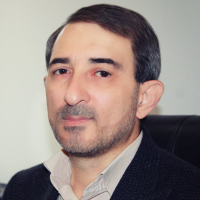The History of Political Philosophy in the Fourteenth Century at the Qom Seminary
Author(s):
Article Type:
Research/Original Article (دارای رتبه معتبر)
Abstract:
The present study aims to examine the evolution of political philosophy at the Qom Seminary over the past century. In this regard, efforts have been made to analyze the trajectory of political philosophy from the establishment of the Qom Seminary to the present time. Therefore, the main question of the research is: How has the stream of political philosophy at the Qom Seminary evolved since its inception? The research method is descriptive-analytical, and the results indicate that the emergence of political philosophy as a distinct field of knowledge in the Qom Seminary dates back to the last three decades of the fourteenth century (Hijri calendar) in seminary-university institutions. Over the past thirty years, these educational and research institutions have established one of the few centers of political philosophy in the country, particularly focusing on the introduction and expansion of Islamic era political philosophy in Iran and contemporary political philosophy. Attention to three key points is crucial in the teaching and research of political philosophy: first, the instruction of primary languages of this field; second, familiarity with the principal schools and sources of Western and Islamic political philosophy; and third, the teaching of the latest methods of thinking and reasoning in the realm of political philosophy. By focusing on such aspects of political philosophy, the Qom Seminary can be recognized as one of the scientific-religious centers in the world capable of addressing human issues on a global scale.
Keywords:
Language:
Persian
Published:
Journal of transcendent Policy, Volume:11 Issue: 44, 2024
Pages:
7 to 20
https://magiran.com/p2778645
مقالات دیگری از این نویسنده (گان)
-
hikmaht-e mutaāliyah: the Nature of Political Action1
*
Journal of Political and International Approaches, -
Transcendental wisdom: The nature of political and civil institutions
Mohammad Pezeshki*
Journal of Fundamental Researches on Humanities,



